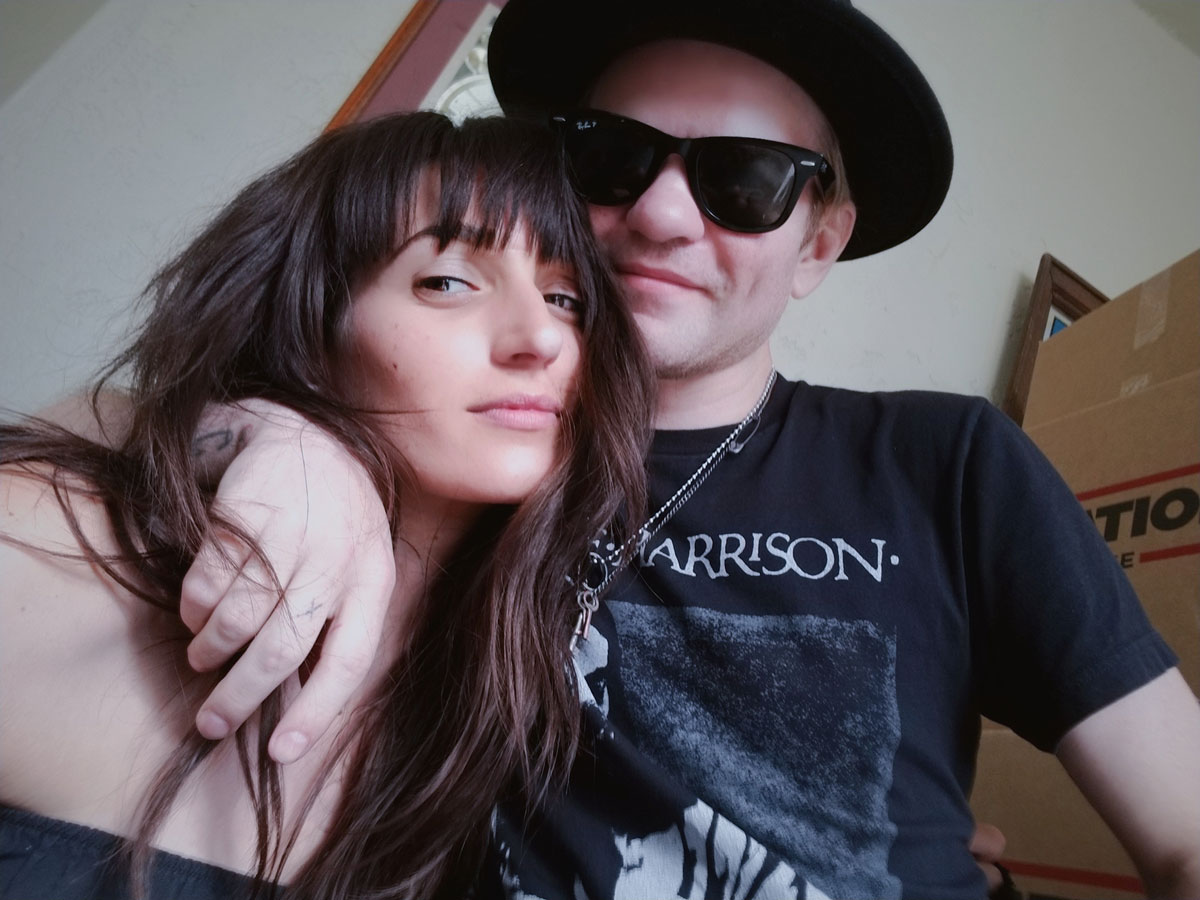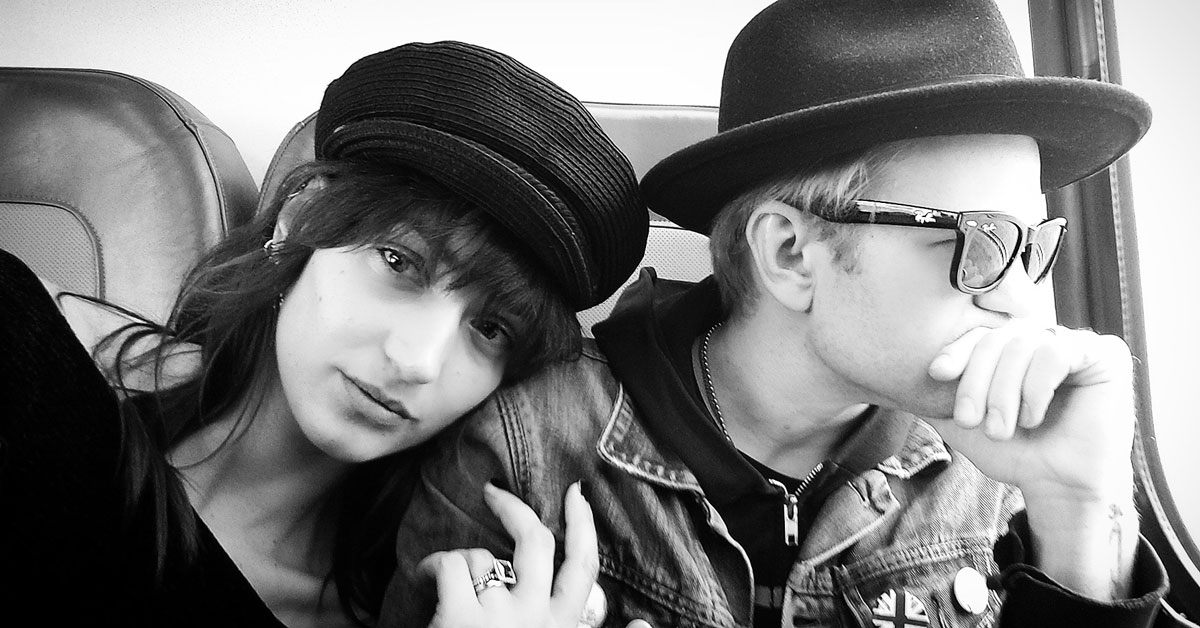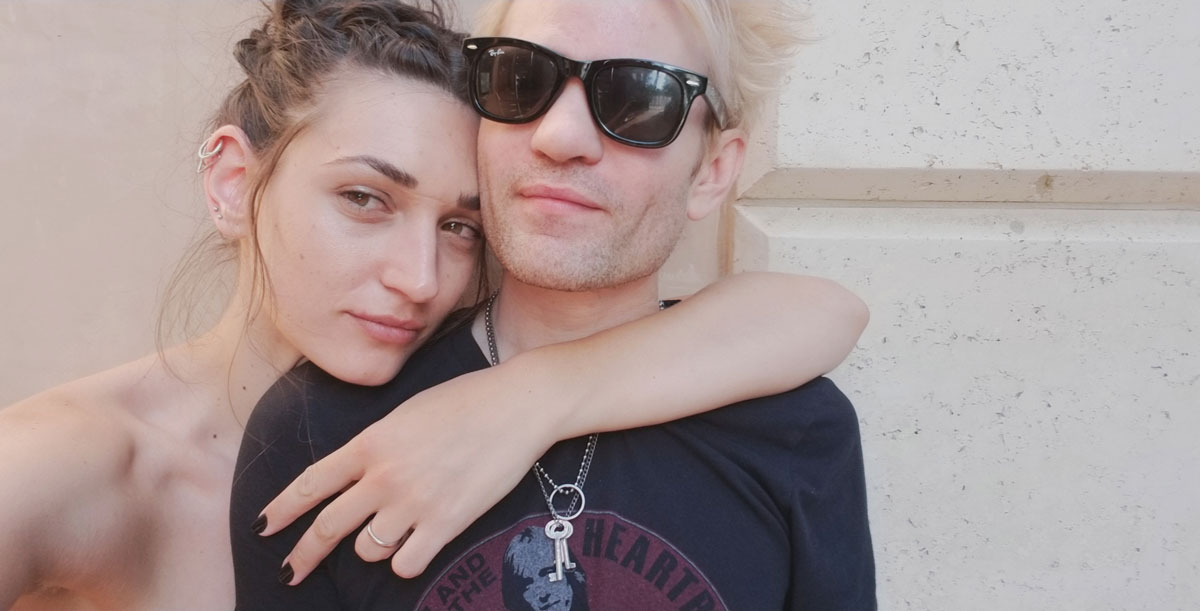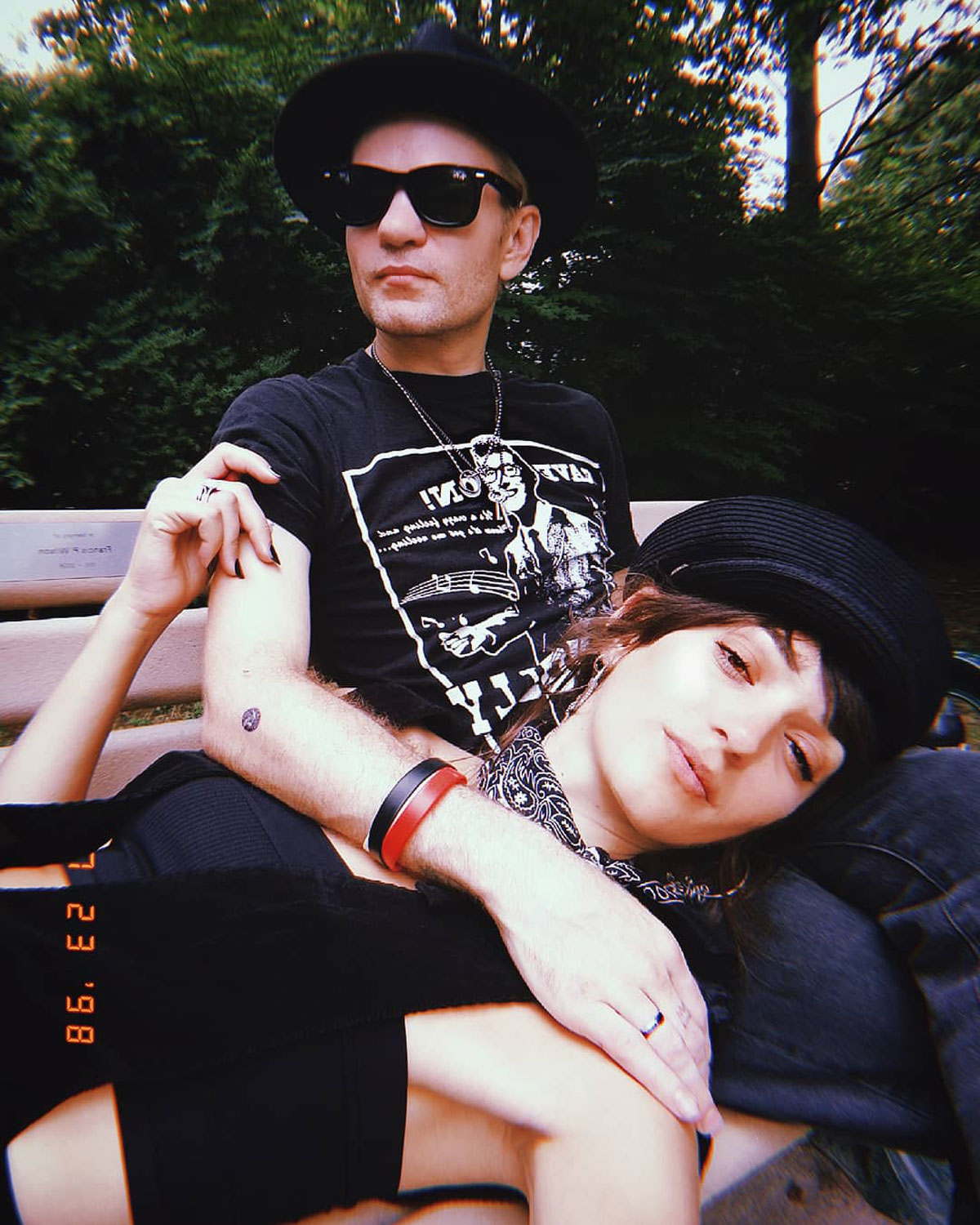Deryck Whibley on mental health: “Life can be really hard, but it can be great, too. We just have to work at it”
The Sum 41 leader teams up with fellow mental health advocate nothing,nowhere for a new take on the band's single Catching Fire, which tackles his wife Ari's suicide attempt

All the latest guitar news, interviews, lessons, reviews, deals and more, direct to your inbox!
You are now subscribed
Your newsletter sign-up was successful
Starting with Mental Health Awareness month and continuing throughout the following months, Guitar World is hosting a series of interviews and features with artists addressing and raising awareness around themes of mental health, particularly as they relate to musicians.
In tandem with Mental Health Awareness Month (May), award-winning rock band Sum 41 released a new version of Catching Fire, featuring singer/songwriter and mental health advocate nothing,nowhere. The song originally appeared as the closing track on the band’s most recent album, Order in Decline.
This time, Catching Fire is a standalone track with a deeply personal backstory: Sum 41 frontman/guitarist/songwriter Deryck Whibley wrote the song about his wife, Ari, six years after her 2013 suicide attempt. The new version is accompanied by a black-and-white video featuring contributions from fans memorializing loved ones they lost to suicide.
With Ari’s support and encouragement, Deryck Whibley is speaking out to raise awareness about mental health, advocate for suicide prevention, and work toward breaking the stigma surrounding mental health challenges.
Before Ari tried to end her life, was mental health something you thought about in any capacity? Did you have friends, family members, or colleagues who struggled?
“At that time, I would have said no, nothing I was aware of. I don’t remember anyone ever talking about personal struggles with mental health or anything. Obviously there are days when I’m upset or sad or angry, or things bum me out, but I never felt that I suffered from depression.
“What I found out later is that I struggle with a lot of anxiety and panic attacks. Someone recently told me that it’s a mental health issue, and I didn’t know. I thought it was just something I go through and don’t talk about or think about. I have moments when I get crippling panic attacks, and I’ve been dealing with them for twenty years, but I never talked about it and never knew what it was.”
All the latest guitar news, interviews, lessons, reviews, deals and more, direct to your inbox!
For years, the two of you didn’t discuss what happened that night and what Ari was still dealing with. We know that silence contributes to the stigma and worsens the condition for the person who is suffering. Why didn’t you talk about it?
“I don’t know if either of us knew how to talk about it, or felt comfortable talking about it, or really wanted to talk about it. When it happened, we were both drinking and wrestling with our own addictions, even though we were together. When we were drinking, I thought we were having a fun time. I didn’t know that she wasn’t feeling the same way.
It took writing the song for me to finally bring it up and say what I had been thinking, and for us to open up a dialogue and start talking about it
“I don’t want to speak for her, but this is what we’ve talked about – that it would be great a lot of times, but sometimes she would get really down and the alcohol could make that even worse.
“So when it happened, we talked about it a little bit for the next day or so. She said she felt better, and we both thought that maybe it was due to the drinking and it was just a bad night. We just went on, and even though it was in the back of our minds, or at least my mind, we never spoke about it again. We just continued down the path that we were on.
“It was about a year later that I ended up in the hospital, and then we got sober. Through the next few years I could never shake it. I could never stop thinking about it because I was so clear and aware. That night haunted me every single day, but I didn’t know how to bring it up. I didn’t know what to say. Because time had passed, I didn’t want to bring it up if she wasn’t thinking about it. I didn’t want to trigger something. I had that fear of, ‘Do I bring it up or do I not?’
“She never said she wished we had talked about it sooner. She said she felt ashamed and embarrassed. It took writing the song for me to finally bring it up and say what I had been thinking, and for us to open up a dialogue and start talking about it.”

Ari battled depression for some time before she tried to end her life. Respectfully, how did you not know? Were there no warning signs?
“Once we got sober, I never noticed anything. I never noticed any signs. She always seemed really happy, even when we talked about the actual night or got in-depth.
“There were times when, without talking about that night, we lightly would broach the subject. I would say, ‘How are you feeling?’ and she would say, ‘I’m feeling really good.’ I would say, ‘No, seriously, how are you actually feeling?’ She would say, ‘I know what you’re getting at, and I feel great,’ and then we would move on. That was as far as we would get.
“We both thought that the drinking had exacerbated it, because it’s not something she fights on a daily basis. I didn’t notice anything again until eight or nine months ago, when we were in the middle of the pandemic.
“I noticed her mood changing, and because we’ve been able to talk about it freely and openly, I was able to bring it up. She started talking to a therapist and she felt a lot better over time. She’s in a much better place now, but there were a few months during the pandemic that I was getting very worried and I saw the signs this time.”
What were the signs for Ari?
“At the very beginning of the pandemic, about two weeks before the lockdown started, we had a baby. Everything was amazing, obviously, and we were so happy that we had our first child and I was home and we could be a family.
“Everything was going great for the first six months. Then I noticed a loss of joy in her. She was so joyful every day, and it disappeared quickly. It was like a mood change. She was very quiet, very inward, and seemed exhausted.
“At first I thought, ‘We just had a baby; of course we’re exhausted,’ but she didn’t seem herself. She seemed joyless. So I started asking, and at first she said, ‘I’m fine. I’m tired, we just had a baby, it’s difficult.’
“But as time went on, I knew there was something more. I asked her, ‘Would you like to talk to somebody, because maybe I’m not the right person. I don’t know how to talk you through something like this. I don’t quite understand it.’ When she said, ‘Yes, I think I need to talk to somebody,’ I knew it was more than her being exhausted.”

Is Ari still seeing a therapist? What about you? Did you seek therapy for your anxiety and panic attacks?
“For a few months she was active in therapy and it helped a lot. It’s different for everybody, but for Ari [depression] seems to come and go, and right now she’s in a great place.
“I have gone to therapy in the past. When I first started having panic attacks, I had no idea what was happening. Every day, all day, I was fighting this feeling and I didn’t know what it was. I was 22, and in those early days we were partying so much, there was alcohol and drugs around, and I thought maybe I had done something to my brain and I was never going to be the same again.
“I went to a therapist to find out what was going on with me, and they said it was panic attacks and anxiety, so I started seeing someone to help me deal with that. The same thing as with Ari, it comes and goes with me. I’ll go two years without ever thinking about that feeling, and then some years I feel like I’m fighting one every day for two months straight.”
Once I get the first line, it comes from somewhere in my subconscious, I guess, and I just follow it. I let the words guide me
You wrote Catching Fire while Ari was out of town visiting family. Can you tell us about the writing process?
“I wrote that song really quickly. I always start with music first. I never know what I’m writing. I don’t sit down to try to write something. I just pick up a guitar and start fooling around. I started singing this melody and a word or two came out.
“Once I get the first line, it comes from somewhere in my subconscious, I guess, and I just follow it. I let the words guide me.
“I had a couple lines and I realized I might be talking about Ari. It had been about a week that she’d been with family, and it was the first time in our whole relationship where I’d been at home by myself for that long. I felt really lonely, and I started thinking about that night again and that this is what it would feel like being without her.
“I was miserable while she was gone, and as I started thinking about that, I got so sad and upset that I actually cried. I knew that was what I was writing about, and I finished the song in 10 or 15 minutes. It all just poured out.”

At that point, did you know it would end up on an album?
“No. I didn’t even think it was going to be for Sum 41. When I write an album for Sum 41, I always end up having a few songs, usually the slow ones, that I think would never make the album and I’ll save them for something else. Usually they end up on the album. That’s what I thought with Catching Fire.”
What were Ari’s thoughts about going public with the story behind the song?
“She knew what the song was about, and as the time was coming closer to the album release, I said, ‘What do we say about this? How comfortable are you?’ She said, ‘I think you should tell the story.’ She was fine with it.
At the last minute I chickened out and thought, ‘I don’t want to tell anybody right now. I don’t even know how to talk about it. I’m not comfortable yet.’
“My biggest fear was putting attention onto Ari. It’s one thing if I put attention onto myself, but putting attention on other people though my music is always a hard thing for me. I was afraid. I didn’t know how people would react, how she would actually react once it was out there, and I didn’t tell anybody at first.
“As we were doing this re-release for Mental Health Awareness Month, I went to her again and said, ‘I think maybe it’s time to talk about it. What do you think?’ She said, ‘Yes. I always wanted to in the first place. I’m fine with it. If we can help even one person, then it’s worth it.’ I said, ‘Okay.’ She feels strongly about it, so who am I to step in the way?”
How did the collaboration with nothing, nowhere come together?
“I don’t know how far out from Mental Health Awareness Month it was, but we knew it was coming up and we thought this song would be good to put out at that time. When it was on the album, it was the last track and never was released as its own thing.
“I was talking to a friend who worked with nothing, nowhere, and he was playing me some of his music. I thought, ‘This guy’s got a great voice.’ I had the idea that if we had him do a verse and a chorus, he would sound great. I’d heard that he talks about mental health a lot and it’s very important to him, so I thought this would be a great collaboration.”

You posted a call to fans to submit clips. Were you surprised by the response? They must have been so difficult to watch and select.
“I was surprised. I don’t know the exact total of how many were submitted, but there were a lot. I was surprised how young the people were and how young the ages were when they were holding up the dates. I’m surprised but yet I’m not, because it’s something we all know about. But seeing it and seeing how young they were – that was heartbreaking.”
What is your message for fans who are battling depression or any mental health challenge?
“That’s always a tough one because it’s different for everybody, and different things work for different people. For the two of us, we’ve worked hard to get through some of the difficult times and we’re so glad we did, because life can be great as well. I couldn’t imagine, if either one of us had given up, all the things we would have missed just in the past few years.
“Even though I wasn’t dealing with depression, I was drinking myself to death, Ari almost lost her life to suicide, and I think about the things we would have missed out on. To our fans I would say that life can be really hard, but it can be great, too. We just have to work at it.”
Mental health resources
Alison Richter is a seasoned journalist who interviews musicians, producers, engineers, and other industry professionals, and covers mental health issues for GuitarWorld.com. Writing credits include a wide range of publications, including GuitarWorld.com, MusicRadar.com, Bass Player, TNAG Connoisseur, Reverb, Music Industry News, Acoustic, Drummer, Guitar.com, Gearphoria, She Shreds, Guitar Girl, and Collectible Guitar.
